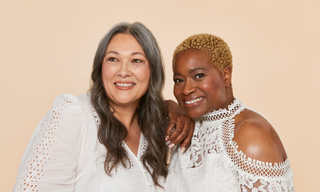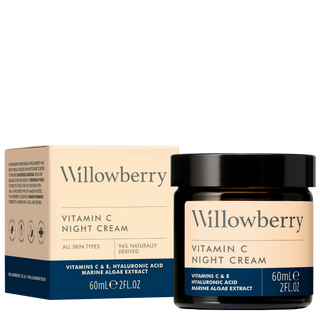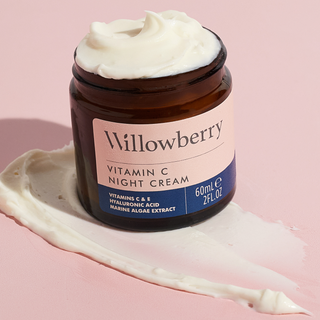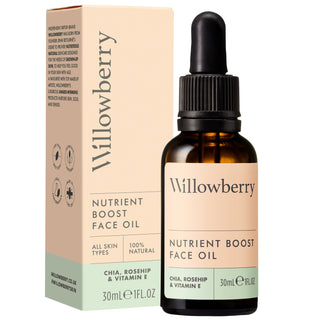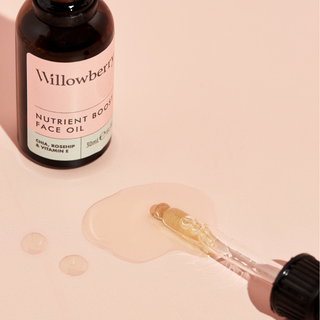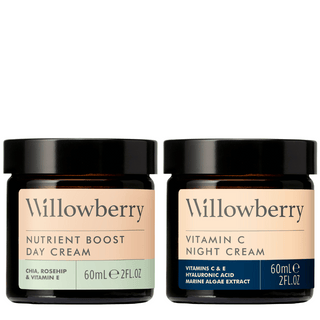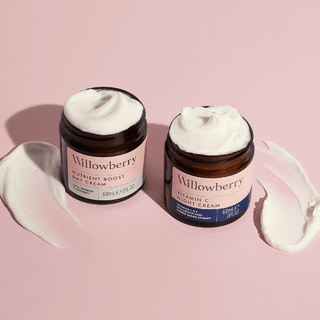As part of Willowberry's National Age Without Apology month, we hosted a panel talk with industry experts to discuss: How can we best represent age in beauty? The talk highlighted the glorious potential of women in midlife and beyond. We’ve distilled the chat into three key takeaways that will appear on our blog. In this third article on the panel talk, we look at self esteem during midlife.
Our panel of speakers:
Jenni Retourné, Founder, Willowberry Skincare and host of the talk
Helena Grzesk MBE, Chief Operating Officer, British Beauty Council
Lorraine Pascale, TV Personality, Best-Selling Author, Life Coach and Founder of The Rebrand
Eleanor Mills, Editor, Broadcaster and Founder of midlife platform Noon
Jan Masters, Telegraph Columnist
Ruby Hammer MBE, Global Make-up Artist and Brand Founder
Sallie Berkery, MD of CEW (Cosmetic Executive Women)
According to the Office for National Statistics, in 2020 there were 13 million women aged 50+ and by 2040 this is predicted to rise to 15.3 million, compared to 13.5 million women aged under 50. That’s a lot of women to be largely ignoring in beauty advertising. Willowberry skincare has always championed Age Without Apology, making sure we represent older women within our beauty imagery, use better language around age and help you to age well. We held this industry panel talk to call for the rest of the beauty industry to do the same.
Self-esteem sabbotage
While some of us are better at projecting confidence than others, it is a feeling that ebbs and flows for us all. As we grow older, it can be derailed for all kinds of reasons, big and small. Our panel discussed what can be done to help encourage self-esteem amongst older women and what role the media, advertising and the beauty industry play in this.
Lorraine Pascale, founder of midlife community The Rebrand, suggests that midlife is a key time when self-esteem can be sabotaged. “I set up The Rebrand community because I noticed that there’s a lot of loneliness and anxiety and decreasing self-esteem happening in the 40+ segment,” she explains.
Comparison is the thief of joy
We know that scrolling through images of other people’s lives (and appearances) online can have a negative effect on how we feel about ourselves, but no matter how aware we are it is hard not to be pulled into a mindset of measuring ourselves against the curated highlights of other people’s lives. Lorraine recognises that is part of the problem: “Anxiety and self-esteem was very high in my research. It was largely influenced by the fact that we’re changing obviously, we’re looking older but the messages we’re seeing in the media or social media accounts … there’s a lot making us feel bad. I think we have a duty of care as influencers to change the narrative on how midlife women are represented.”
Ruby Hammer had some practical advice, “Educate yourself and pay attention to yourself, not in a narcissistic way, but with self-knowledge so you know, this is what works for me or these are the things I need. Get more information about what’s relevant to you. Look at people on Instagram that resonate with you and aren’t trying to tell you to become somebody else. Find your own voice and know that it’s ok, it’s great.”
Midlife women… portrayed by men
The panel discussed how media messaging needs to change from the ground up to ensure the best outcome for the self-esteem of mature women, and a key part of this change can come from ensuring older women are part of the creative teams that produce the advertising campaigns. As Sallie Berkery pointed out, “If you’ve got a creative duo who are men in their 20s or 30s dreaming up an ad campaign for a product they’ve got nothing to do with, they can’t truly understand what the message is going to be.”
Eleanor Mills further explored the idea that the way women are portrayed in the media is still very much viewed through a male lens. “I was Chair of Women in Journalism for nearly 10 years and during that time I talked a lot about what I call the ‘male lens’. Society, the media and the beauty industry particularly see themselves through a male lens. To men, that later bit of women’s lives is not valuable. The male lens values us for being fecund and fanciable and all those kinds of things and that’s how the media still sees women.
“We need a total revolution so that we do not see women as peaches - one wrinkle and they’re out, whereas men are seen as ageing like fine wine getting better with time. That is a narrative that needs to change.”
Reframing the midlife narrative
It seems that during midlife, although we may become less visible to society, we often actually become stronger in ourselves and more able to speak out. As Eleanor illustrated: “Once you become 50, you’re a bit more outspoken, you’re a bit less pleasing in many ways and I love being able to speak my mind.”
In terms of media representation, Lorraine believes we need to show a new perspective on midlife: “Finding our purpose in life, being more able to speak our truth during midlife; how can we weave those positive messages into beauty, advertising, marketing, messaging and language, to be more inspiring and change this narrative of midlife women simply being about this narrow talk around anti-ageing?”
Maybe if that possibility of portraying the fact that life can get better as you get older was more openly explored, it could help to bolster self-esteem for entire older generations. That’s exactly what Jan Masters did with her Telegraph column ‘What is 60 For?’: “If you’d said to me in my 20s when I was just starting out in journalism in the beauty industry; the thing you’re going to enjoy the most writing, the thing you’re going to feel most positive about writing, that’s going to make you laugh the most, celebrate the most, is when you’re going to talk about being 60, I would have said, no way!”
Willowberry is nutritious natural skincare for grown-ups, for your best skin.
A favourite with top make-up artists, Willowberry's luxurious award-winning products protect skin’s natural barrier function, to nourish and revive grown-up skin without telling women to be 'anti-ageing'.
As seen in Vogue, Independent, The Telegraph, This Morning and more.

